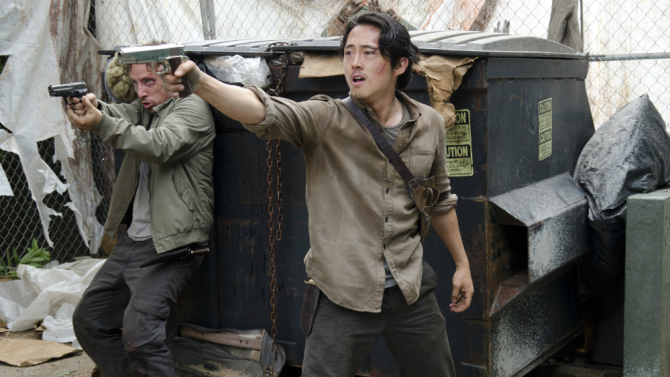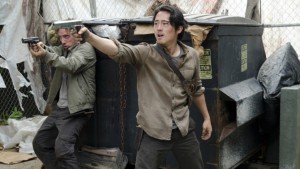Every Sunday evening this fall, you’ll find me clutching a cabernet in The Tavern’s back room as I watch “The Walking Dead.” Fans know this story isn’t really about zombies. What keeps us hooked is how the characters react to the zombies and struggle to retain their humanity in the apocalypse.
The zombie has a long history rooted in slavery. Scholars link zombies to pre-independence Haiti, where African religious beliefs and French Catholicism mixed into voodoo. On sugar plantations, enslaved Africans were literally worked to death, zombified, with owners able to replace them with new bodies when the slaving ships made port.
It wasn’t until director George Romero took this idea to a B film called “The Night of the Living Dead” that we began to think of zombies as infected white dead come to life (and needing to eat, an inconsistency that happily does nothing to mar the telling of a good tale). In the AMC series, humans engage in a never-ending search for a safety that is especially elusive as each season comes to a thrilling end.
Hordes of desperate, hungry “walkers” invite analogies to any number of crises: income inequality, Ebola, the effects of climate change. But the recent Paris attacks conjure an especially vile comparison. For too many Americans – including Gov. Pat McCrory – Syrian refugees are a zombie-like contagion that must be barred from our shores.
The reasons are devoid of logic and devolve quickly into phobias too numerous to list. Chief among them is the notion that Muslims are by definition terrorists. The fact that most terrorism victims are Muslim is entirely irrelevant to the spread of this particular bug. Never one to pass up an opportunity to spew hatred, GOP presidential candidate Donald Trump claimed in a Vine that refugees are “pouring” into the United States (categorically untrue) and “could be ISIS or anything.”
Maybe sane people?
Anyone who’s watched the drama taking place in Europe can see for themselves who the refugees are – desperate families fleeing the very acts we all found so shocking in Paris. The fact that parents are putting their children in danger is all the measure you need of the depth of this disaster. Since summer, a friend of mine has been helping pull people out of the Mediterranean in Greece, exhausted by the work and revived by the mission (see video below).
Often he posts photos of those he’s saved when they arrive at their destinations. For one, he even arranged the acquisition of a wheelchair, since this man’s loved ones had literally carried him from Syria.
A bomb had shattered his legs in his home town. These people want peace, safety, a place where their children can grow up. It’s really not hard to understand.
Yet the United States – with its significant role in creating the wars that have torn this region apart – has so far committed to resettling only 10,000 Syrian refugees. Now that McCrory and over two dozen governors have symbolically slammed the door in the refugees’ faces, this threatens to become a campaign issue. The fact that accepting refugees is not subject to state regulation seems irrelevant to these isolationists. In a heated election campaign, fear-mongers are taking full advantage to push a deeply troubling agenda that demonizes refugees – that makes them into a kind of walking dead.
There is hope. In October, Durham City Councilman Steve Schewel introduced a resolution urging the city to support Syrian refugee settlement in our city. Schewel acknowledges this is a gesture. Like the governor, the council has no power to override U.S. State Department procedure. But the message our city sent when the council unanimously approved the measure is one of hope, not phobia. I hope that my fellow Durhamsters continue to stand for hope, not fear, in these troubling times.
One especially chilly Sunday, I’d settled in my usual dark Tavern corner when other Walking Dead fans urged me to their table. Alita (shout out!) and Ernest were almost as well versed as me in the intricacies of the story. When the zombies closed in, we held our breaths. When the survivors reunited, we sighed. And we screamed as one when a certain pizza delivery guy named Glenn fell from the dumpster and…
In the days since the episode, the Twitterverse has been popping with speculation about the character’s fate. We love Glenn not because he’s all-powerful or indestructible. We love him because he is the reverse of all of those things – fragile, sometimes weak, but always human.
He’s us, in other words, and we see his struggle as our own.
The refugees are the same – terribly fragile, but full of hope. Terrified but willing to attempt a dangerous crossing for the lives of their children. There are dangers everywhere, to be sure. There are dangers for all of us. The least we can do is offer them safety. The least we can do is give them a home.
The least we can do is accept that they’re human.
Published in The Durham News on November 22, 2015




